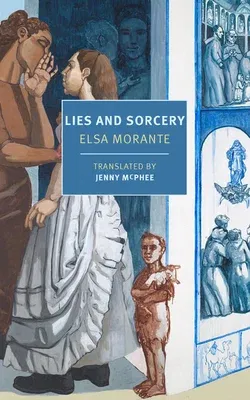An Italian master's magnum opus about three generations of women and
their unhappy marriages, now in the first-gever unabridged English
translation.
Elsa Morante is one of the great writers of the twentieth
century--Natalia Ginzburg said she was the writer of her own generation
that she admired most--and yet her work remains little known in the
United States. Morante's celebrated first novel, Lies and Sorcery,
written during the war, when Morante, half-Jewish, was living in hiding,
and published in 1948, is a sprawling 700-page novel in the grand
tradition of Stendhal, Tolstoy, and Proust, spanning the lives of three
generations of wildly eccentric women. Set in Sicily, the story is told
by Elisa, who, after the sudden death of her parents, was adopted at a
young age by a wealthy "fallen woman." Over the fifteen years that she
has lived with her "protectress," Elisa has retreated into an imaginary
world populated by relatives and ancestors. Beginning with the death of
Elisa's guardian, Lies and Sorcery recounts this young woman's attempt
to reclaim reality by uncovering the dark details of her family's
tortured and dramatic history. The reader is drawn into a tale, sweeping
in scope, of family secrets, of intrigue and treachery, that is also an
exploration of political and social injustice. Throughout, Morante's
elegant and elaborate prose as well as her drive to get at the heart of
her characters' complex motivations and relationships and their all-too
self-destructive behavior hold us spellbound.
A heavily abridged English translation of Lies and Sorcery came out in
the 1950s under the title of House of Lies. Jenny McPhee's new
translation is the first complete English rendering of the book that
Georg Lukács considered the greatest of modern Italian novels.

